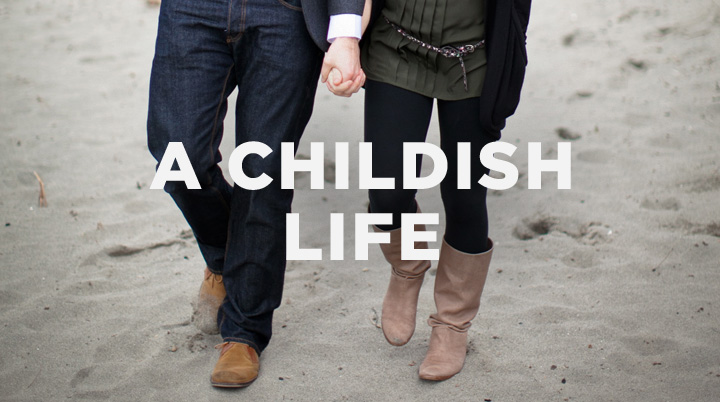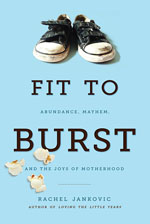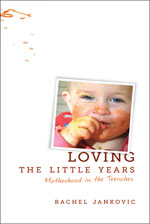Latest
-
Objections to the Christian Faith from the Unchurched and De-Churched
 Tue Dec 02, 2014
Tue Dec 02, 2014
by Resurgence -
Craig Groeschel: We Innovate for Jesus
 Tue Oct 14, 2014
Tue Oct 14, 2014
by Resurgence -
Mark Driscoll: Revelation
 Tue Oct 07, 2014
Tue Oct 07, 2014
by Resurgence -
RESURGENCE LEADERSHIP #034: JOHN PIPER, WHY I TRUST THE SCRIPTURES, PART 2
 Tue Sep 30, 2014
Tue Sep 30, 2014
by Resurgence -
Resurgence Leadership #033: John Piper, Why I Trust the Scriptures, Part 1
 Tue Sep 23, 2014
Tue Sep 23, 2014
by Resurgence

Archives
A childish life

America’s birth rate is on the decline as more couples are choosing not to have children. And it’s likely that typical reactions to news like this miss the central issue.
A recent cover story for Time entitled “The Childfree Life” is actually not about the reduction of number of children in our midst. It purports to address that subject by discussing the declining American birth rate and the increasing number of women who will never have a child—deliberately. But our reactions to stories like this miss the central issue.
Perpetuating childhood as far as we can make it go
Our declining birth rates, and the fact that one in five women will remain childless today, as distinct from one in ten as recently as the ’70s, don’t tell us about the vanishing child at all. This is actually the era defined by the conquest of the child. We are not reducing the number of children—we are increasing the percentage of them, and we do this by perpetuating childhood as far as we can make it go. With dual incomes, credit cards, endless distractions, and birth control devices, that’s pretty far. Perhaps the most defining feature of childhood—and the most definitive evidence of its perpetuation in our culture—is that children are not having children.
Isn’t this just a tired reiteration of the very common charge of selfishness directed at childfree couples in their forties, the kind of charge that boors like to level at cocktail parties? No, a charge of selfishness should never be leveled lightly; it’s a weighty one, and we have to define it before saying anything that barges into other people the way this can. When appealing to any standard, whether to critique or defend, we always have to ask what the standard is, and why it is authoritative.
“Me” behavior
Is being deliberately childfree selfish? What is selfishness, and who decides what is selfish? That is where the real problem is: When a typical child of our times says “I do” and says that behavior rejected by previous generations is nevertheless something that “works for me,” then I would suggest we don’t need to research this very much further. We have entered the era where every self manufactures his or her own ethical system and hangs it from his or her very own hook in the sky. One might say the closets of our generation have a whole lot of “self space.”
One might say the closets of our generation have a whole lot of “self space.”
And when self is the standard, nothing can be condemned as selfish. So, assuming the right to configure your own closets the way you please, I would say that childfree couples are being no more selfish than a host of other people who have opted for other choices.
Selfishness according to God
But if God defines what selfish is—and he is the one who defines what our bodies are for, and he has told us to be fruitful and multiply (Gen. 1:28)—then the question is entirely different.
In the Bible, selfishness is revealed through relationships with people. Children are people, and so it is not possible to talk about the childfree approach without talking also about its effect on relationships. A child is not an object, like a laptop or camera, that you can simply forego and that is the end of it. A child refused is a relationship refused.
A child refused is a relationship refused.
Our current trend toward chosen childlessness is simply the latest manifestation of what has been a long confusion. There was the “population bomb” hysterics in the ’60s. And we have seen the obvious inability of centralized economies to feed their people, along with the erroneous conclusion that people were the problem. As a result, we have been conditioned to see any appeals to bear children for “the good of the nation” as being the kind of theme you might see in a Soviet Art mural, urging all the women to get out there and do their duty for Mother Russia.
But bringing up children is a blessing from God that allows us to exercise selflessness. It’s a riotous affair, filled with joy, messes, sleep deprivation, sorrow, picking up toys, and more joy. The one thing it does not do very well is flatter any parent’s desire for long stretches of herbal tea-fueled “me time.”
“In a multitude of people is the glory of a king, but without people a prince is ruined” (Prov. 14:28).
If you want a rollicking account of what it’s like to have your selfishness challenged at every step, checkout these resources from Rachel Jankovic and Canon Press:

